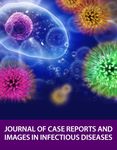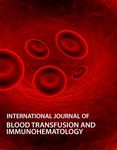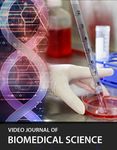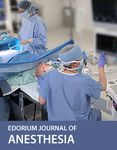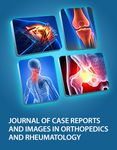Perichondritis Shah Darshan, George Liji
←
→
Page content transcription
If your browser does not render page correctly, please read the page content below
Int J Case Rep Images 2019;10:101023Z01SD2019. Darshan et al. 1
www.ijcasereportsandimages.com
CLINICAL IMAGE PEER REVIEWED | OPEN ACCESS
Perichondritis
Shah Darshan, George Liji
CASE REPORT
A 26-year-old Caucasian female with complaints of
right swollen pinna (Figure 1) two weeks from that was
progressively worsening came to the office. Swelling of
the right pinna was associated with severe pain, intensity
7/10. Pain was non-radiating with no aggravating or
relieving factors. Patient had ear piercing three weeks
ago. One week prior, she was examined at an urgent care
facility for the same and was given a ten-day course of
amoxicillin for presumed acute otitis externa. Despite
of being on antibiotics her symptoms got worsened.
Patient was a non-diabetic and in good health, with no
other significant past medical history. She was not on any
prescription medications. No history of trauma or injury
to the ear.
Patient was afebrile on examination with normal
vital signs. She had an inflamed, erythematous and
tender right pinna with sparing of the ear lobe. She has
serosanguinous discharge from “Scapha” of the right
external ear, where the piercing was done. External
auditory canal was free of cerumen, erythema and or any
signs of infection. Tympanic membrane had a normal
cone of light without air fluid level. Hearing was not
impaired. Rest of the systemic examination was normal.
The differential diagnosis could be simple otitis externa
(or “swimmer’s ear”), malignant otitis externa, cellulitis,
perichondritis and abscess. Patient had no exposure to
swimming. No involvement of deeper structures or soft
Figure 1: Ear infection.
tissues on examination, but involvement of pinna favored
the diagnosis of perichondritis.
Our patient was referred to ENT surgeon for further
management who performed surgical drainage of the
Shah Darshan1,2, George Liji3 infection. Pseudomonas was isolated. She was prescribed
Affiliations: 1Hospitalist, Bartow Regional Medical Centre a seven-day course of Levofloxacin. She had full recovery
and Lakeland Regional Medical Centre, Polk County, Flor- with no further sequelae or complications.
ida; 2Assistant Professor, University of Central Florida Col-
lege of Medicine, Florida; 3Primary care physician, Baycare
Medical Group, Plant City, Florida.
DISCUSSION
Corresponding Author: Dr. Darshan Shah, 1799 Altavista
Circle, Lakeland 33810, Florida; Email: darshans2000@ The ear is divided into the external, middle, and
gmail.com internal parts (Figure 2) [1]. The external ear is where our
focus lies with this case. It consists of a fan like projection
Received: 14 February 2019
called the pinna/auricle, which works to collect sound,
Accepted: 29 March 2019 and the external acoustic meatus that funnels sound
Published: 26 April 2019 to the tympanic membrane. The pinna is composed of
elastic cartilage covered by skin. It contains a number of
International Journal of Case Reports and Images, Vol. 10, 2019. ISSN: 0976-3198Int J Case Rep Images 2019;10:101023Z01SD2019. Darshan et al. 2
www.ijcasereportsandimages.com
elevations and depressions. Of importance are the helix, A painful, red ear is the most common symptom [2]. At
which is the raised cranial margin of the pinna, and the first, the infection will look like a skin infection (cellulitis),
antihelix, which is an elevation paralleling the helix. but it quickly worsens and involves the perichondrium.
These two ridges create the fossa triangularis anterior to The redness usually surrounds an area of injury, such
the antihelix, and the scapha located between the helix as a cut or scrape. Patient may also present with fever and
and antihelix. The blood supply to the ear arises mostly in severe cases serosanguinous or purulent drainage.
from the posterior auricular and superficial temporal Perichondritis is diagnosed based on the patient’s
arteries. Innervation of the skin is derived from the history and by physical examination. If there is a history
great auricular and auriculotemporal nerves. The great of trauma along with pain and redness of the ear with
auricular nerve supplies the back of the ear as well as the sparing of earlobe then perichondritis is suspected. There
helix, antihelix and lobule. The auriculotemporal nerve may be a change in the normal shape of the ear.
supplies the skin of the pinna anterior to the acoustic Treatment consists of antibiotic coverage, either
meatus. Lymphatic drainage of the external ear is carried by mouth or intravenous. Antimicrobial of choice is
out by three groups of lymph nodes. The lateral surface of Fluoroquinolones. If there is a trapped collection of pus,
the superior half of the pinna is drained by the superficial surgery may be necessary to drain this fluid and remove
parotid lymph nodes. The cranial surface of the superior any dead skin and cartilage [2].
half of the auricle drains to the mastoid nodes and deep If antibiotics are taken early on, full recovery is
cervical lymph nodes. The remaining portion of the pinna expected. In more advanced cases, when the infection
drains to the superficial cervical lymph nodes. The helix involves the ear cartilage (chondritis), part of the ear
and the scapha are the structures predominantly involved may necrotize and need to be surgically removed. A
in perichondritis. perichondrial abscess may also develop. If so, plastic
Perichondritis is an infection of the skin and tissue surgery may be needed to restore the ear to its normal
surrounding the cartilage of the outer ear. The most shape [2].
common bacteria that causes perichondritis infection
is Pseudomonas aeruginosa. Perichondritis is usually
caused by injury to the ear due to ear surgery, ear piercing CONCLUSION
(especially piercing of the cartilage), or contact sports.
Ear piercing through the cartilage is probably the most The best way to prevent this infection is to avoid
significant risk factor. Surgery, burns, and acupuncture piercing an ear through the cartilage (as opposed to the
also increases the risk of infection. ear lobe). The popularity of cartilage piercing has led to
a significant increase in the number of perichondritis. If
perichondritis is anticipated then prompt diagnosis and
early treatment with antibiotics may prevent surgical
drainage.
*********
Keywords: Ear piercing, Perichondritis
How to cite this article
Darshan S, Liji G. Perichondritis. Int J Case Rep
Images 2019;10:101023Z01SD2019.
Article ID: 101023Z01SD2019
*********
doi: 10.5348/101023Z01SD2019CL
REFERENCES
1. Moore KL, Dalley AF. Clinically Oriented Anatomy.
Figure 2: Anatomy of External Ear. 5ed. Philadelphia: Lippincott Williams & Wilkins;
Image courtesy of www.myvmc.com 2006. p. 1022–4.
International Journal of Case Reports and Images, Vol. 10, 2019. ISSN: 0976-3198Int J Case Rep Images 2019;10:101023Z01SD2019. Darshan et al. 3
www.ijcasereportsandimages.com
2. Ruckenstein MJ. Infections of the external ear. In: Guarantor of Submission
Cummings CW, Flint PW, Haughey BH, Robbins KT, The corresponding author is the guarantor of submission.
Thomas JR, editors. Otolaryngology: Head & Neck
Surgery. 4ed. Philadelphia, Pa: Mosby Elsevier; 2005.
Source of Support
None.
*********
Consent Statement
Author Contributions
Written informed consent was obtained from the patient
Shah Darshan – Conception of the work, Design of the
for publication of this article.
work, Acquisition of data, Analysis of data, Interpretation
of data, Drafting the work, Revising the work critically
for important intellectual content, Final approval of the
Conflict of Interest
Authors declare no conflict of interest.
version to be published, Agree to be accountable for all
aspects of the work in ensuring that questions related
to the accuracy or integrity of any part of the work are
Data Availability
All relevant data are within the paper and its Supporting
appropriately investigated and resolved
Information files.
George Liji – Conception of the work, Design of the work,
Acquisition of data, Analysis of data, Interpretation of Copyright
data, Drafting the work, Revising the work critically for © 2019 Shah Darshan et al. This article is distributed
important intellectual content, Final approval of the under the terms of Creative Commons Attribution
version to be published, Agree to be accountable for all License which permits unrestricted use, distribution
aspects of the work in ensuring that questions related and reproduction in any medium provided the original
to the accuracy or integrity of any part of the work are author(s) and original publisher are properly credited.
appropriately investigated and resolved Please see the copyright policy on the journal website for
more information.
Access full text article on Access PDF of article on
other devices other devices
International Journal of Case Reports and Images, Vol. 10, 2019. ISSN: 0976-3198You can also read





